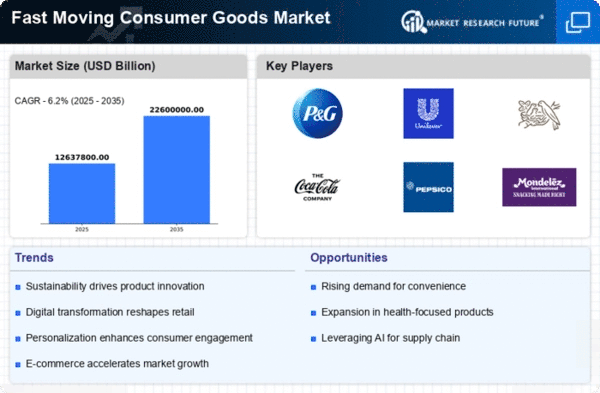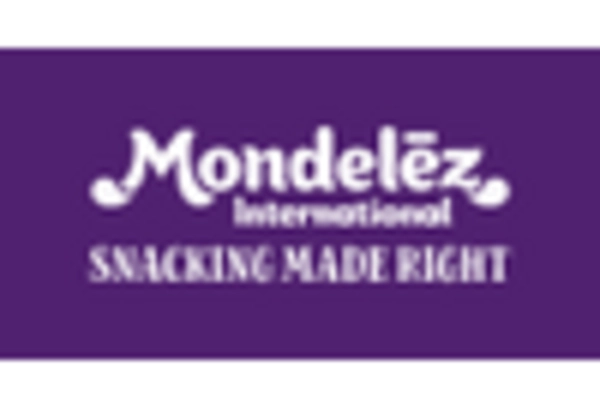Market Share
Fast Moving Consumer Goods Market Share Analysis
The fast-moving consumer goods (FMCG) market is subject to various trends that continuously shape its dynamics and cater to the evolving needs and preferences of consumers worldwide. One significant trend in the FMCG market is the growing demand for health and wellness products. As consumers become more health-conscious and proactive about their well-being, there is a rising preference for products that offer nutritional benefits, natural ingredients, and functional properties. This trend encompasses a wide range of categories, including organic foods, plant-based alternatives, vitamins and supplements, and health-focused beverages, reflecting a broader shift towards a healthier lifestyle among consumers.
Additionally, convenience remains a key driver in the FMCG market, with consumers gravitating towards products that offer time-saving solutions and on-the-go convenience. Ready-to-eat meals, single-serve snacks, and pre-packaged beverages continue to gain popularity among busy consumers seeking convenience without compromising on taste or quality. Moreover, the rise of e-commerce and digital grocery platforms has further accelerated the demand for convenient FMCG products, allowing consumers to shop for groceries online and have them delivered directly to their doorsteps.
Furthermore, sustainability and environmental responsibility are increasingly important considerations in the FMCG market. With growing concerns about climate change and environmental degradation, consumers are seeking out brands that prioritize sustainable practices throughout their supply chains. From eco-friendly packaging and recyclable materials to ethical sourcing and waste reduction initiatives, sustainability has become a key differentiator for FMCG brands looking to attract environmentally conscious consumers. This trend reflects a broader shift towards conscious consumerism, where consumers are willing to pay a premium for products that align with their values and support sustainable practices.
Moreover, there is a rising interest in ethnic and international flavors within the FMCG market. As global travel and cultural exchange continue to shape culinary trends, consumers are increasingly seeking out authentic and exotic flavors from around the world. This trend encompasses a wide range of categories, including ethnic foods, international snacks, and gourmet ingredients, reflecting a growing appreciation for diverse cuisines and culinary experiences among consumers.
The COVID-19 pandemic has also had a significant impact on the FMCG market, driving several notable trends. With lockdowns and social distancing measures in place, there was a surge in demand for essential household products, including cleaning supplies, personal hygiene products, and pantry staples. Additionally, as consumers spent more time at home, there was a rise in demand for home cooking and baking ingredients, as well as comfort foods and indulgent treats. The pandemic also accelerated the adoption of e-commerce and digital grocery platforms, as consumers sought convenient and contactless shopping options amidst health and safety concerns.
Looking ahead, the FMCG market is expected to continue evolving in response to changing consumer preferences, technological advancements, and market dynamics. Brands that can adapt to emerging trends, such as health and wellness, convenience, sustainability, ethnic flavors, and e-commerce, are likely to thrive in the competitive landscape. Additionally, as consumers become more digitally savvy and socially conscious, there are opportunities for FMCG brands to engage with consumers through digital marketing, social media, and influencer partnerships. With ongoing innovation and adaptation, the FMCG market holds promising opportunities for brands that can anticipate and respond to the evolving needs and desires of today's consumers.


















Leave a Comment